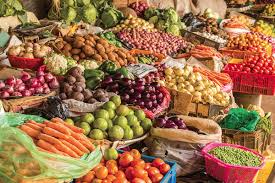Africa Press-Nigeria:
With Nigeria one of 36 countries at the risk of an acute food crisis in Africa, the United Nations World Food Programme (WFP) says it has scaled up its outreach to 1.2 million people monthly in the northeast region of the country in the wake of the coronavirus crisis.
WFP’s national communications officer, Kelechi Onyemaobi, disclosed this to PREMIUM TIMES in an email interview.
Mr Onyemaobi noted that about 7.9 million Nigerians were projected to need humanitarian assistance this year, but the number could double due to the coronavirus crisis.
He said WFP’s assistance aims to fill the difference between what people need and what they can provide for themselves. He said the minimum daily average dietary requirement of a person is 2,100 kilocalories.
“In North East Nigeria, when we provide direct food assistance, people receive cereals (sorghum, millet or maize), pulses (usually beans), and vegetable oil to cover their needs for 30 days,” he said.
According to its mission statement, WFP is committed to saving and changing lives through food delivery assistance to communities during emergencies, so as to improve nutrition and building resilience.
The global agency’s efforts are focussed on emergency assistance, relief and rehabilitation, development aid, and special operations. Two-thirds of its operations are in conflict-affected countries where people are three times more likely to be undernourished than those living in countries without conflict.
While the COVID-19 pandemic is threatening to double the number of hungry people in Nigeria, Mr Onyemaobi said the food security situation in Nigeria was quite alarming even before the pandemic.
“To say the least, some 7.9 million people in Nigeria are in need of humanitarian assistance in 2020, according to the Humanitarian Response Plan (HRP) adopted by the government and the humanitarian community.
“Of this number, over five million people are in need of food assistance in 16 northern states including Abuja, the Federal Capital.”
Mr Onyemaobi said COVID-19 would double the number of food insecure people in Nigeria “unless we all put heads together to extend food assistance to the most vulnerable people in our communities, towns and villages.”
Even before the pandemic, he said WFP had been carrying out humanitarian services in three major states in the northeast (Adamawa, Borno and Yobe), which are the epicentres of the BokoHaram insurgency crisis.
He said the agency had been rendering services in the northeast since 2016, which involves the provision of fortified blended nutritious foods to prevent and treat moderate acute malnutrition among children under five years of age, pregnant and breastfeeding mothers, and people with disabilities.
“The average family size that we base our assistance on is five people. Where we provide cash, what is known as the Survival Minimum Expenditure Basket (SMEB) informs the transfer value and this is calculated at 2,100 kcal/per person for an average family size of five people,” he said.






